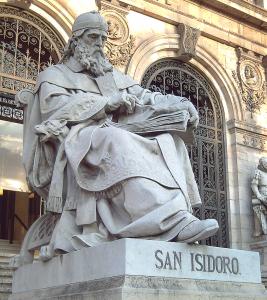
In dealing with the current crisis of the church, when we see many people lose faith and leave the church, some think that the solution is to promote more catechesis and apologetics. They think the problem is that people do not have a sufficient understanding of what the church teaches, and so if someone would explain to those who have fallen away from the faith the church’s doctrines, they would swiftly return to the fold.
Not only is this a simplistic solution to the crisis, it presents a poor understanding of the faith itself. It presupposes that faith is solely about what one understands about doctrine; this suggests that those who have the most education will be those who have the most faith. If someone has a problem, the solution is to study and they will find out the problem is meaningless. If you don’t know where to turn, listen to the best apologists, to those most skilled in debates, and accept what you hear.
Is this really a good answer? Is this really the answer of the faith itself? No.
There is value in study. There is value in knowing Christian doctrine, and what it says and does not say. But to limit the faith to such is to turn it into something very human, something unmystical, something that is merely the letter of the faith without its spirit. Such an understanding of the faith promotes useless arguments and sophisticated debates instead of the faith itself. While a mature faith is a faith seeking understanding, it is also a faith which is manifested in works and not in useless arguments and rules. A proper faith is holistic, and with the loss of this holistic integration of truth, goodness, and beauty for the sake of a pseudo-rationalistic apologetics, the faith presented will not be a faith worth following.
The rise of modern Catholic apologetics coincides with, and is formed by, a culture of debate; at first glance, it might seem to offer a way for people to come to faith, but because it offers a humanistic enterprise without mystery, indeed, because it decries such mystery with its attempt to be ultra-rationalistic, what it gains with its rhetoric it loses two-fold when people see beyond the rhetoric, noting that there is nothing substantial left for them to hold to in faith. When there is a crisis of faith, apologetics cannot provide what the soul needs. It does not offer authentic spiritual food, because it tries to divert someone away from what has caused them to have a crisis of faith in the first place. Such a diversion might work in the short term, but in the end, its emptiness will become apparent and substantial spiritual food will be looked for elsewhere. If such apologetics is seen as all that is to be offered, then what is offered will be rejected. We need to integrate our whole selves, mind, body, and soul, with Christ. There is value in study, in intellectual pursuits, but to make it the whole of our faith will neglect the faith itself.
St. Isidore of Seville has much to offer us in relation to this concern. While he promoted the doctrinal teachings of the church and helped preserve them in his various works, he said that it is better to live a life of faith doing good than it is to study the faith and know it in a merely scholastic fashion:
It is beneficial to know many things and live correctly. But if we are not capable of doing both, it is better to follow the pursuit of living well than that of knowing many things.[1]
While there are many Christian scholars, Christianity does not require one to be a scholar to have faith. For most of history, it was only a small portion of the Christian faithful who were literate. If having detailed knowledge of Christian doctrine was necessary, few people would have been Christian.
This, it would seem, has been lost to many who think it is better to know things than to act out on what one knows and to live the faith in an authentic fashion. The crisis in the church today is not a crisis of theological knowledge, but of deed. Those priests who abuse others know such abuse is wrong: they probably could detail all the ways in which such abuse is said to be evil, but yet that knowledge has done them no good. All the study in the world, without seeking first the righteousness of God, to live a holy life, and present to the world that holy life, will turn out to be worthless. If the church wants to deal with the crisis of faith before us, and of course it should, the proper response is not to promote more study and intellectual debates, but rather, to seek the righteousness of the faith and to actually do what is good and true. “But seek first his kingdom and his righteousness, and all these things shall be yours as well” (Matt. 6:33 RSV). The reason why many converted to the Christian faith in the first few centuries of the church is that they saw Christians actually lived out the faith, that they were willing to die for the faith: it wasn’t because some scholars came to them, argued the faith to them, and they suddenly believed. It was the authenticity of the faith, of the lives of those who believed, with the promotion of justice and charity, which brought many non-believers to belief. It was very rare for someone to be suddenly converted to the faith solely because they studied the faith and came to believe it.
St. Paul, therefore, warned us that knowledge of the truth, in and of itself, is not enough; without love, without charity, without a holistic approach to the truth, we are nothing, making the faith itself nothing:
I speak in the tongues of men and of angels, but have not love, I am a noisy gong or a clanging cymbal. And if I have prophetic powers, and understand all mysteries and all knowledge, and if I have all faith, so as to remove mountains, but have not love, I am nothing (1 Cor. 13:2 RSV).
This has been lost to many apologists. They like to be noisy gongs clanging about what they think they can prove. But the thing is the ugliness of their attitude, the self-promotion which they engage, turns people away; whatever limited value can be had in their presentation is overturned by their useless clanging. St. Isidore, understanding this problem, explained:
The pursuit of contentious arguments is engaged in not for the sake of truth but out of a desire for praise, and there is such perversity in such things that they do not know how to cede to the truth and they contend to destroy correct doctrine itself.[2]
As heresy is the promotion of a partial element of the truth against the fullness of the truth, apologetics easily leads to and promotes heresy as does not seek to cede itself to the fullness of the truth but rather present particular apologists as representatives of its fullness. Many apologists establish only a simulacrum of the faith as they present a rationalistic, human-centered, way to comprehend the faith, while the truth itself is beyond our comprehension and will transcend what our reason can establish. Those who follow what is presented by such apologetics as the fullness of the faith will lose the transcendent mystery of the faith itself, the transcendent glory, and so eventually will find what they possess does not satisfy. The crisis of faith will return once this has happened.
To live well, to integrate the truth which is understood into our lives, and to unite truth and goodness, allows the beauty of such truth to attract and overcome the insufficiencies of a purely rationalistic approach to the faith. The church needs its leaders, indeed, all Christians, to live well, to present the holy life. This, more than simple apologetics, is what will help the church deal with its present crisis (and any future crisis as well).
Signs and wonders, whether they are miracles, or complex scholarly arguments, will never be enough on their own. When the church’s failures come to light, reform is necessary, because the failure to live out the good will call into question the church’s claims of the truth. It is important now for the church to preach how to live well, to live in justice and with charity, if we want people to see the truth which the church has come to know:
Even if the power of miraculous signs was given to the apostles for the sake of nourishing the faith of the other nations, the power of works has been given to the Church to provide for its own faith, and even in the apostles themselves the power of works was more extraordinary than the power of miraculous signs. Thus now also in the Church it is better to live well than to produce miraculous signs.[3]
Since this understanding has been lost, it should not surprise us that we have come to a major crisis for the church. Those who see the church seemingly lacking in the promotion of the good, such as social justice, will question the claims the church gives about the truth. While, to be sure, this could be an ad hominen response, because someone could proclaim the truth while doing evil, it is understandable why those who do not understand the truth as the church does will disregard it so long as it appears to suffer from a want of good leadership. Only with proper reform within the church itself, only with the church cleansing itself of the evil which has merged within those structures can apologetics begin to offer help to those with a crisis of faith.
Obviously, there are many reasons why some people leave the church. Each of them can be and should be addressed. When the reasons reveal real problems coming from the church itself, the answer must not be to promote more apologetics as a way to distract from those problems. The answer must be authentic reform. The answer must be that the church itself needs authentic conversion to Christ, that is, metanoia. Until then, apologetics, and those who seem to promote it, will never satisfy.
[1] St. Isidore of Seville, Sententiae. Trans. Thomas L. Knoebel (New York: Newman Press, 2018), 85.
[2] St. Isidore of Seville, Sententiae, 166.
[3] St. Isidore of Seville, Sententiae, 76.
Stay in touch! Like A Little Bit of Nothing on Facebook.
If you have liked what you read, please consider sharing it with your friends and family!













